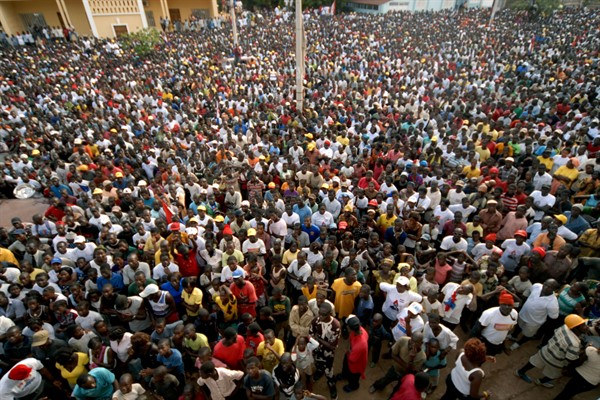Back in 2000, Paula Silva de Melo, a veteran journalist, took to Guinea-Bissau’s national television channel, RTGB, to read aloud a communique that openly criticized the government.
Guinea-Bissau had just come out of a civil war that had left media institutions and journalists in a precarious position. Many broadcasters and publications had suffered serious damage to their equipment, and the few outlets that remained active were little more than propaganda tools for the war’s belligerents. But the country was embarking on a liberalization process that promised to expand press freedoms. Journalists like de Melo were eager to hold power accountable, and new private media companies were cropping up to help shape public discourse.
The communique de Melo read on air was written and signed by Fernando Gomes, the former president of an NGO, the Guinean League for Human Rights, and a leader of the now-defunct opposition Socialist Alliance of Guinea party. In it, Gomes explicitly named and critiqued then-Prime Minister Caetano N’tchama, accusing him of corruption. But the fact that de Melo and her co-anchor, Iussuf Queta, weren’t the authors of the letter did not seem to matter to N’tchama.

